2024-25 Faculty Affiliates
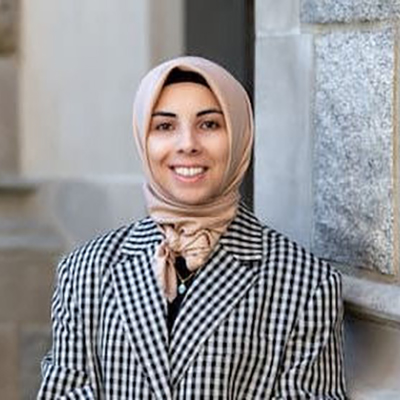
Prof. Marsin Alshamary (Political Science)
Marsin Alshamary is a scholar of Middle Eastern politics, with a primary focus on religious institutions, civil society, and protest movements. She is currently working on a book manuscript titled: A Century of the Iraqi Hawza: How Clerics Shaped Protests and Politics in Modern Day Iraq, which explores the historical and contemporary interactions between the Shi’a religious establishment and protest movements. Her research has been published in academic journals, including The Journal of Democracy, and she has provided commentary to various media outlets such as Al Jazeera and BBC. She has also consulted for organizations like the United Nations and the World Bank. As an educator, she teaches courses on religion and the state in the Middle East, state building and revolution in the Middle East, and civil society and democracy. She holds a doctorate in political science from the Massachusetts Institute of Technology (MIT) and she is currently a faculty associate in the Islamic Civilization and Societies Program at Boston College.
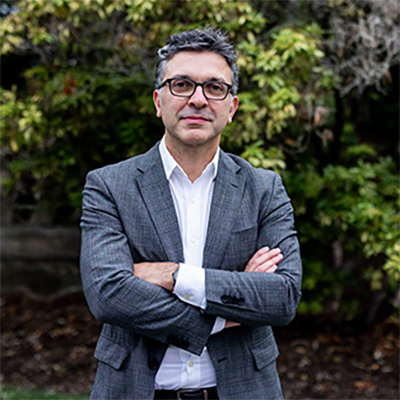
Prof. Paulo Barrozo (Law)
Paulo Barrozo is a Professor and legal theorist at Boston College Law School, where he holds the title of John C. Ford, SJ Distinguished Scholar. He received an S.J.D. from Harvard Law School and a Ph.D. in Political Science from the Rio de Janeiro University Research Institute. He currently works on a novel theory of the evolution of law in high-complexity societies. Can law and its institutions hold societies together? How has law stabilized highly complex societies, whose stability depends on constant change? A theory is needed to explain how the nature and evolution of law accounts for the way law operates over time to produce sociological stability out of normative ordering. Through his theoretical work, Prof. Barrozo hopes to account for why high-complexity societies achieve – when they do – social stability as constant functional adaptation and values responsiveness through small quotidian and large occasional normative changes.
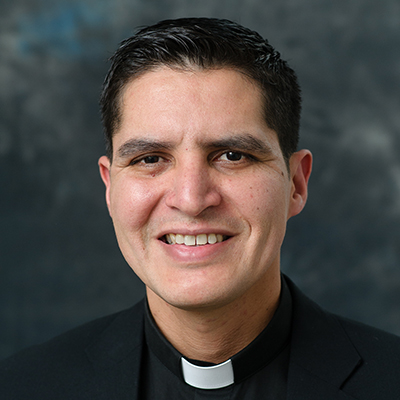
Prof. Erick Berrelleza (Sociology), Dean of Messina College
Erick Berrelleza, S.J. is the founding Dean of Messina College at Boston College. The new residential college will offer an associate’s degree program for 200 underrepresented, first-generation students beginning in the 2024-25 academic year. A Los Angeles native and a member of the USA West Province of Jesuits, Fr. Berrelleza received a B.A. in philosophy from Loyola Marymount University, an M.Div. from Boston College, and a Ph.D. in sociology from Boston University. Fr. Berrelleza’s research lies at the critical intersection of space and place, the sociology of religion, and immigration. He has studied the broad exclusionary effects of gentrification in an urban church in Boston, MA and the embodied practices of undocumented immigrants living in spaces of confinement in the New Sanctuary Movement. His most recent project is a comparative ethnography of Latino religious life in urban and rural North Carolina. His work has appeared in City & Community and the Review of Religious Research.
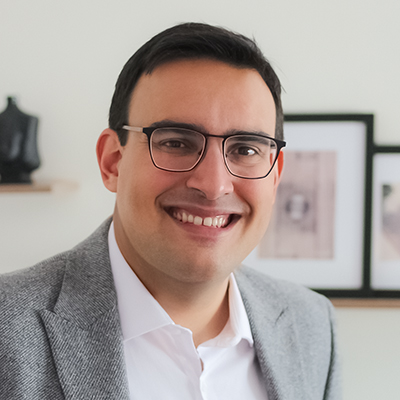
Prof. Fernando Bizzarro (Political Science)
Fernando Bizzarro is an Assistant Professor of Political Science at Boston College, whose work explores the intricate nature, underlying causes, and far-reaching consequences of democracy and political parties. His current research explores the impact of economic inequality on political representation, the political foundations of inclusive economic growth, and the factors contributing to democratic stagnation in Latin America. Employing a combination of observational and experimental empirical strategies, Bizzarro examines both global and local questions concerning the functioning of democratic institutions. His overarching goal is to empower citizens and scholars worldwide with insights that not only enhance their understanding of democratic processes but also pave the way for expanding their welfare and upholding their dignity.
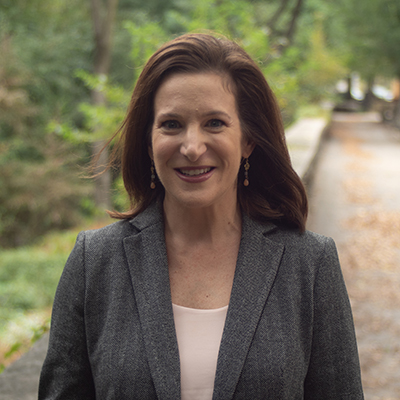
Prof. Kristin Heyer (Theology)
Kristin E. Heyer is professor of theological ethics in the theology department at Boston College. Her recent work takes up agency, migration ethics, and moral imagination. She has authored or co-edited eight books, including The Moral Vision of Pope Francis: Expanding the US Reception of the First Jesuit Pope, Christianity and the Law of Migration, Conscience and Catholicism: Rights, Responsibilities and Institutional Responses and Kinship Across Borders: A Christian Ethic of Immigration. She serves as co-chair of the planning committee for Catholic Theological Ethics in the World Church and Past President of the Catholic Theological Society of America (2024-2025). She has lectured widely in the United States and in Austria, Belgium, Bosnia and Herzegovina, India, and Sweden on such topics as immigration, the common good tradition, Catholic social movements, and feminist ethics. Her current book project, Moral Agency and the Promise of Freedom, is under contract with Georgetown University Press. She received her B.A. in history from Brown University and her Ph.D. in theological ethics from Boston College. Prior to returning to Boston College, she taught at Santa Clara University and Loyola Marymount University.
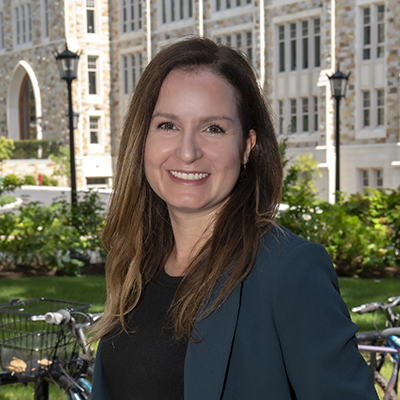
Prof. Lauren Honig (Political Science)
Lauren Honig is an Associate Professor of Political Science at Boston College, whose research and teaching focus on comparative politics and the political economy of development in African countries. She is particularly interested in the politics of property rights; the roles of informal and customary institutions; natural resource politics; and state-citizen linkages. Several of her current research projects examine land rights and plural systems of authority. This includes her book, Land Politics: How Customary Institutions Shape State Building in Zambia and Senegal (2022, Cambridge University Press). Her research has been published in Perspectives on Politics, African Affairs, American Political Science Review, Comparative Politics, Democratization, the Journal of Politics, and World Development. She has received funding from the National Science Foundation (NSF), Fulbright Council, and the Social Science Research Council (SSRC), among others.
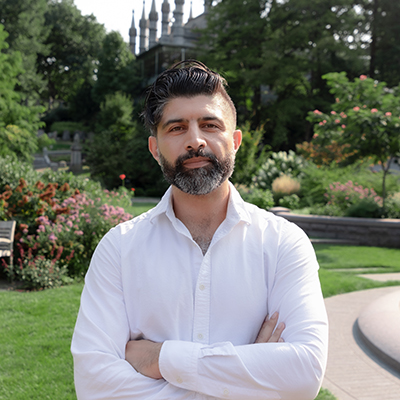
Prof. Ali Kadivar (Sociology)
Mohammad Ali Kadivar is an Assistant Professor of Sociology and International Studies at Boston College, with a background in both political science and sociology. After obtaining his MA and BA in political science from the University of Tehran, Iran, he pursued and completed his PhD in Sociology at the University of North Carolina at Chapel Hill. Kadivar's scholarly contributions lie at the intersection of political and comparative-historical sociology, with a particular focus on the dynamics and implications of protest movements. His interest in this field is deeply rooted in his firsthand experiences as a participant-observer in Iran’s pro-democracy movements. Kadivar’s research extends beyond this context to a broader global analysis, employing case studies, comparative-historical methods, and statistical analyses to explore these phenomena. His work has been widely recognized and published in leading journals like the American Sociological Review and Comparative Political Studies, and has garnered multiple awards from various sections of the American Sociological Association (ASA). Kadivar’s recent publication, Popular Politics and the Path to Durable Democracy, released in November 2022 by Princeton University Press, marks a significant contribution to understanding the underpinnings of democratic resilience.
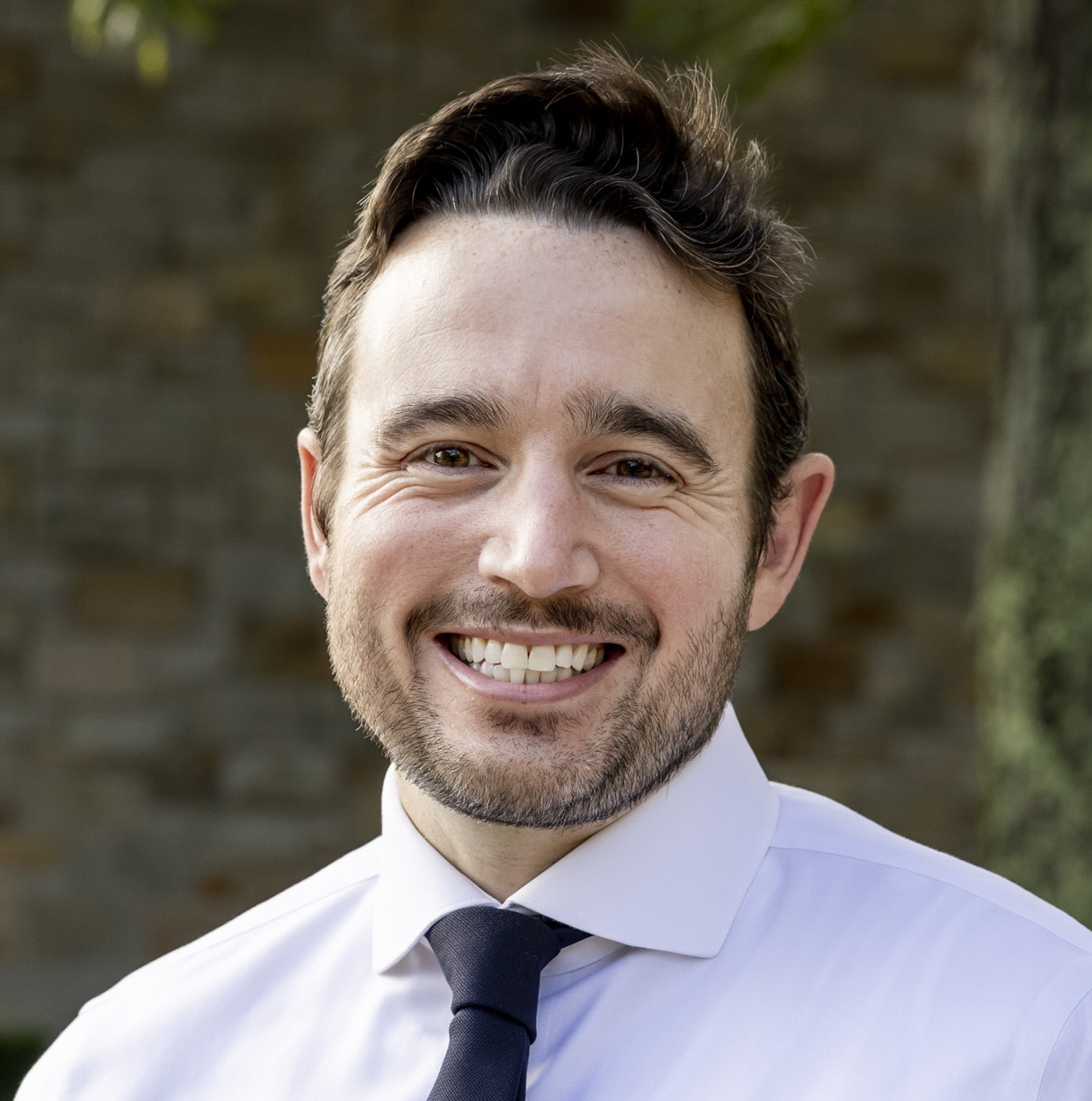
Prof. Peter Krause (Political Science)
Peter Krause is an Associate Professor of political science at Boston College and a Research Affiliate with the MIT Security Studies Program. His research focuses on Middle East politics and Israeli-Palestinian relations, political violence, nationalism, rebels and revolution, and peace-building. He is the author of Rebel Power: Why National Movements Compete, Fight, and Win (Cornell University Press, 2017), co-editor of Coercion: The Power to Hurt in International Politics (Oxford University Press, 2018), and co-editor of Stories from the Field: A Guide to Navigating Fieldwork in Political Science (Columbia University Press, 2020). His current book project analyzes which rebel groups take power after regime change and why. He is a former Fellow in the International Security Program at the Harvard Kennedy School, the Crown Center for Middle East Studies at Brandeis University, and the Democracy, Peace and Justice Forum at Uppsala University. He has a Ph.D. in political science from MIT and a B.A. in political science and history from Williams College.

Prof. Thibaud Marcesse (Political Science)
Thibaud Marcesse received his Ph.D. in Government at Cornell University in 2018. His dissertation investigated the impact of rights—based policies in the field of poverty alleviation on electoral politics at the local level in rural India. His research has most recently appeared in World Development. He is currently working on a book manuscript that will focus on the interactions between elected officials and local state bureaucrats in the context of public policy reform and decentralization in India. Thibaud was awarded a National Science Foundation Award for his field research. Prior to attending graduate school, Thibaud worked in international development, with organizations such as the United Nations Children’s Fund (UNICEF), the National Democratic Institute (NDI) and Chemonics International.
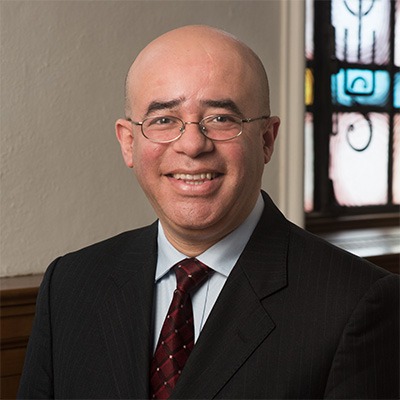
Prof. Hosffman Ospino (Theology)
Hosffman Ospino, PhD is Professor of Theology and Religious Education at Boston College, Clough School of Theology and Ministry where he is also Chair of the Department of Religious Education and Pastoral Ministry. His research explores the relationship between faith and culture, and how that relationship shapes ministerial and faith-based educational efforts. Hosffman has served as the principal investigator for several national studies on Hispanic Catholics and currently serves as the director of a national initiative called “Nuevo Momento: Leadership and Capacity Building for Ministerial Organizations Serving Hispanic Catholics.” He is the author/editor of more than 20 books and more than 260 articles, academic and general. Hosffman is the Past-President of the Academy of Catholic Hispanic Theologians of the United States (ACHTUS) and is currently an officer of the Catholic Theological Society of America (CTSA). He serves on the boards of several academic and ministerial organizations, and is actively involved in ministry with his family in the Archdiocese of Boston.
Prof. María de los Ángeles Picone (History)
Maria de los Ángeles (“Angie”) Picone is a historian of Modern Latin America specializing in the southern cone. She is interested in the intersection of nature and nation-making in border regions, and especially in questions of how people experienced a shared sense of community through their spatial practices. Her current book project, Landscaping Patagonia: A Spatial and Environmental History of Nation-Making in the Chilean-Argentine Borderlands, examines how explorers, migrants, authorities, and visitors constructed their versions of ‘Chile’ and ‘Argentina’ in the Northern Patagonian Andes. This study shows how different actors – namely explorers, settlers, authorities, visitors, and bandits – sought to make Patagonia their own by transforming a collection of geographical sites into a landscape that evoked a shared past and a common future. At Boston College, Prof. Picone teaches courses on Modern Latin America, Spatial History, and Borderlands, and is affiliated with the Graduate Certificate in Digital Humanities.
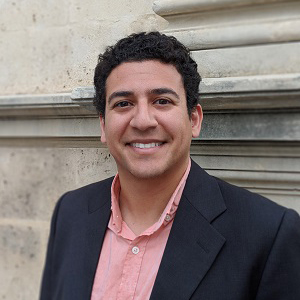
Prof. Aziz Rana (Law)
Aziz Rana is the J. Donald Monan, SJ, University Professor in Law and Government at Boston College Law School. His research and teaching center on American constitutional law and political development, with a particular focus on how shifting notions of race, citizenship, and empire have shaped legal and political identity since the founding. He is the author of The Two Faces of American Freedom (Harvard University Press) and the forthcoming book, The Constitutional Bind: Why a Broken Document Rules America (University of Chicago Press).
Prior to joining the Boston College faculty he was the Richard and Lois Cole Professor of Law at Cornell Law School. He received his A.B. summa cum laude from Harvard College and his J.D. from Yale Law School. He also earned a Ph.D. in political science at Harvard, where his dissertation was awarded the university's Charles Sumner Prize.
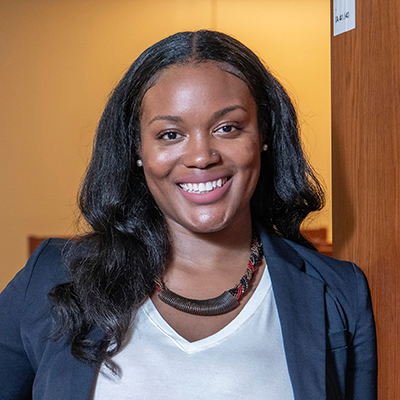
Prof. Lacee Satcher (Sociology)
Dr. Lacee Satcher is an Assistant Professor of Sociology and Environmental Studies at Boston College. Her primary research interests include race/ethnicity, health & place, social psychology of health, and urban environmental inequality. Her most recent work focuses on the racism-environment-health connection, specifically how systems of oppression organize individuals across space and place in ways that structure their relations with and within the built and natural environment to shape health outcomes, health experiences, and place attachment. She has co-authored papers in the areas of environmental justice, identity & higher education, African American health, and Black women's mental health. She has sole-authored papers on environmental racism, urban deserts, and health in Environmental Sociology and Sociology of Race and Ethnicity. One of her current projects includes exploring how residents in stigmatized, resource-scarce neighborhoods foster and sustain attachment to place.Dr. Lacee Satcher is an Assistant Professor of Sociology and Environmental Studies at Boston College. Her primary research interests include race/ethnicity, health & place, social psychology of health, and urban environmental inequality. Her most recent work focuses on the racism-environment-health connection, specifically how systems of oppression organize individuals across space and place in ways that structure their relations with and within the built and natural environment to shape health outcomes, health experiences, and place attachment. She has co-authored papers in the areas of environmental justice, identity & higher education, African American health, and Black women's mental health. She has sole-authored papers on environmental racism, urban deserts, and health in Environmental Sociology and Sociology of Race and Ethnicity. One of her current projects includes exploring how residents in stigmatized, resource-scarce neighborhoods foster and sustain attachment to place.
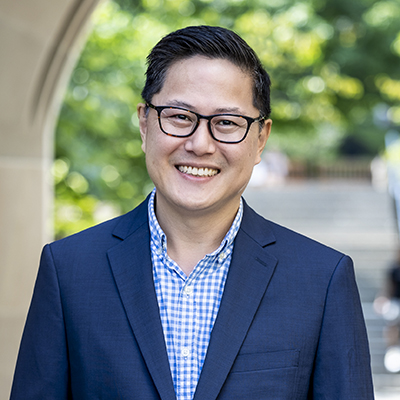
Prof. Min Hyoung Song (English)
Min Hyoung Song is the chair of the BC English Department and a professor of English. He is the author of three books, most recently Climate Lyricism (Duke University Press 2022), which received the Ecocritical Book Prize from the Association for the Study of Literature and the Environment. His second book The Children of 1965: On Writing and Not Writing as an Asian American won several prizes, including the Alpha Sigma Nu award and and the Literary Criticism Book Prize of the Association for Asian American Studies. He also general co-edited the four-volume series Asian American Literature in Transition (Cambridge University Press 2021) and co-edited the volume Cambridge History of Asian American Literature (Cambridge University Press 2015). He is the author of numerous journal articles and book chapters in edited volumes, and has also published essays in The Chronicle of Higher Education, The Los Angeles Review of Books, The Chicago Review of Books, Public Books, The Margins, and The Washington Post.
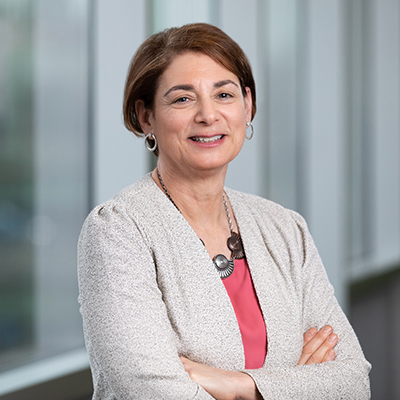
Prof. Laura Steinberg (Earth and Environmental Sciences), Director of the Schiller Institute
Prof. Laura Steinberg is the Executive Director of the Schiller Institute for Integrated Science and Society, and Professor of Earth and Environmental Sciences. She has worked extensively on interdisciplinary research in infrastructure planning and management, disaster preparedness and response in a global context, engineering education, and environmental modeling. She served on the EPA Science Advisory Board, Drinking Water Sub-Committee, and as an editor and advisory board member for Natural Hazards Review, Journal of Homeland Security and Emergency Management, and the Journal of Environmental Engineering. For the American Society of Civil Engineers, she served three terms as a member of the Industry Leaders Council representing civil engineering faculty members throughout the U.S. Prof. Steinberg holds a Ph.D. in Environmental Engineering and was formerly dean of the College of Engineering and Computer Science at Syracuse University.
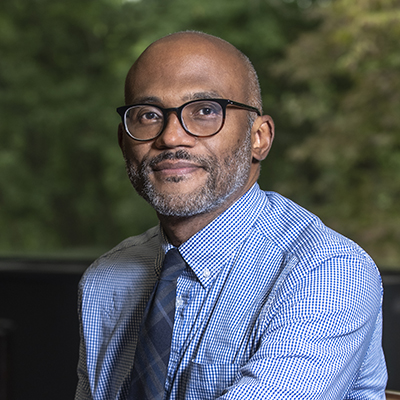
Prof. Martin Summers (History)
Martin Summers is Professor of History and African and African Diaspora Studies at Boston College. He has particular research and teaching interests in race, gender, sexuality, and medicine. He is the author of Manliness and Its Discontents: The Black Middle Class and the Transformation of Masculinity, 1900 – 1930 (2004) and the coeditor of Precarious Prescriptions: Contested Histories of Race and Health in North America (2014). Summers’s research has been supported by the Ford Foundation, the American Council of Learned Societies, the Radcliffe Institute for Advanced Study, and the National Humanities Center. His most recent book, Madness in the City of Magnificent Intentions: A History of Race and Mental Illness in the Nation’s Capital (2019), received the Cheiron Society’s prize for outstanding monograph in the history of behavioral and social sciences. Summers is currently at work on a book, Inner City Blues: African American Mental Health and the “Urban Crisis” in Twentieth-Century Chicago, which examines how social scientists, psychiatrists and psychiatric social workers, government officials, and community activists understood the relationship between urbanization and mental illness and consequently sought to address the mental health care needs of African Americans in so-called ghettoes.

